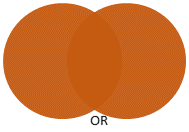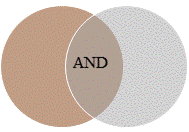
This page contains explanations and descriptions supporting 'Chapter 1, Methodology'
Ch1/1: Zotero
Zotero is a tool for collecting, organizing, citing, and sharing research.
In this BA project Zotero is used for gathering and storing information regarding books, papers, web pages, illustrations and other materials relevant to the project. It is also used for automatic generation of endnotes and Bibliography.
However, Zotero does not allow a division of the bibliographies into ‘primary’, ‘secondary’ and ‘tertiary’ sources, which I find a problem.
It is offered to all student at the University of Copenhagen.
Read more: https://www.zotero.org/
Ch1/2: Search Strategies
In this BA project, four types of searches are applied, namely ‘Quick and dirty’, ‘Building Block Search’, ‘Pearl Growing’ and ‘Systematic Searches’.
-
Quick and dirty: used for testing a keyword, for surfing the internet and to get started on a topic.
-
Pearl Growing: used for example for creating an overview of a specific area or topic within research field. It is the process of applying one piece of information such as a citation or a subject term to find further information. The Pearl Growing strategy is used at the start of the research process as the searcher unearths new pearls regarding the topic.
-
Systematic Searches: used for exhausting a topic for example in REX.
-
A ‘Building Block Search’ using Boolean operators is ideal when dealing with very complex search strings If you wish to make a search such as ‘Regency strawberry picking parties’, you need to create a table and enter each search term in bold in each their column. Next you make a brainstorm and enter related terms/synonyms in each column thus breaking up the information need into facets. The members of a facet are then connected using an OR operator:
Table 1: An example of a building block search
-
Regency OR Georgian OR “19th century” OR “Nineteenth century” --> A Google return for this search string is about 346.000.000 results.
-
Straw?berry OR fruit OR berry --> A Google return for this search string is about 42.100.000 results.
-
picking OR gathering OR collecting --> A Google return is of this search string is about 647.000.000 results.
-
party OR assembly --> A Google return is of this search string is about 4.250.000.000 results.
These long search stings are then surrounded by a parenthesis, and the individual facet groups are connected using an AND operator:
-
(Regency OR Georgian OR “19th century” OR “Nineteenth century”) AND (Straw?berry OR fruit OR berry) AND (picking OR gathering OR collecting) AND (party OR assembly)
--> A Google return for this search string is about 2.700.000 results, so the total number of hits has been greatly reduced, even though it is still much too big. A fifth facet group containing, for example, specific nouns is advisable depending on the desired end result.
When you wish to search the internet or various database, it is important to know about the Boolean operators AND, OR and NOT as they can refine a search by combining or limiting search strings. This is called Boolean logic, named after the man who invented this system, George Boole. Besides the Boolean logic, there are other characters that may be inserted such as * and ?; Some databases might allow symbols such as: & (=AND), + (= OR) and – (=NOT); however, as not all databases operate in the same manner, one must always read the guidelines belonging to the database in question [Ch1/3].




Ch1/3: Boolean Operators, Truncation & Wildcards
To limit the number of hits and to increase relevance and precision, then …
-
the Boolean ‘AND’ is employed when the number of hits is too large and too irrelevant. By using ‘AND’ to combine words the number of hits is decreased (When you apply the ‘AND’, your result will be the common reference of your search strings; in other words your result will be the words that overlap in your search strings).
-
use phrases surrounded by quotation marks “” to keep the words together as one search string.
-
use parenthesis, which combines modifiers, for example: strawberry AND (party OR picnic)
-
the Boolean ‘NOT’ can also be used to increase precision, as it excludes words from a search.
-
the addition of year and language is recommendable.
To increase the number of hits, then
-
use synonyms plus the Boolean ‘OR’ (when you combine search keywords using ‘OR’, your result will consist of the total number of hits from all of your search keywords, i.e. all the references that the searches added together consist of). The Boolean "OR" adds possible options and thus broadens your search string with multiple terms.
-
use truncation * for searching word stems (when you apply the asterisk to the end of a search keyword, then you allow new variations of the keyword, for example:
strawber* -> strawberries and strawberry). -
Use wildcards such as question mark (?) for replacing one letter in a word or if you do not know if a word is spelt in one or two words, for example:
straw?berry --> straw berry, strawberry, straw-berry. -
use umbrella-terms instead of more narrow expressions: for example:
fruit instead of strawberry -
try to combine the keys in another manner.
When you wish to search the internet or various database, it is important to know about the Boolean operators AND, OR and NOT as they can refine a search by combining or limiting search strings. This is called Boolean logic, named after the man who invented this system, George Boole. Besides the Boolean logic, there are other characters that may be inserted such as * and ?; Some databases might allow symbols such as: & (=AND), + (= OR) and – (=NOT); however, as not all databases operate in the same manner, one must always read the guidelines belonging to the database in question [Ch1/3]. As the displaying of each search string applied for this BA project would take up the allowed number of units, a section in the online appendix shows examples of search methods [Ch1/5].
An advisable rule is to leave out colon, capital letters and other characters that might impede a search such as the / a / an.
Read more:
For Boolean operators: https://library.uaf.edu/ls101-boolean
For Truncation & Wildcards: https://researchguides.ben.edu/c.php?g=261618&p=1747799
For Creating a Search Strategy: https://guides.lib.umich.edu/c.php?g=283340&p=2126706
Ch1/4: Recommendable Databases for a Project of this Nature
For a project of this nature the following databases are recommendable:
-
17th and 18th Century Burney Newspapers Collection (Not free, but I was able to obtain a free trial period; it is very recommendable)
-
ArtStor,
-
BL 19th Century digitised newspaper collection,
-
Blackwell Reference Online,
-
British Library’s collection of books, journals, newspapers and maps,
-
British Periodicals – newspapers and magazines from 17th -20th centuries,
-
Cambridge Histories Online,
-
Early English Books Online (EEBO),
-
EEBO-Early English Books Online,
-
Eighteenth Century Collections on line,
-
Eighteenth-Century Journals: A Portal to Newspapers and Periodicals c. 1685-1735,
-
Gale Primary Sources,
-
Google Scholar (You often have to pay a fee or purchase a subscription to access the entire texts),
-
HathiTrust Digital Library,
-
Historical text,
-
Johnson's Dictionary of the English Language,
-
JSTOR (A multidisciplinary historical archive of scholarly journals; the contents of journals have been digitized from the first issues),
-
newspaperarchive.com,
-
Oxford Dictionary of National Biography,
-
Oxford English Dictionary, OED,
-
Oxford Reference Online,
-
Project Gutenberg (For literature texts),
-
Project MUSE (An online database of peer-reviewed academic journals and electronic books),
-
ProQuest (An access to journals, databases, and ebook resources),
-
REX - Royal Library (Good for building block searches),
-
The British Newspaper Archive,
-
Web of Science Core Collection.
Ch1/5: Examples of Search Strings
The problem with displaying the search strings is that most of the literature and materials found and employed were located during the spring and summer of 2018 before the need for documenting the search methods was establish. A hard lesson learned.
A Berry Old Tradition (http://blog.english-heritage.org.uk/a-brief-history-of-english-strawberries/)
--> "19th century" AND "England " AND "Strawberry"
Austenonly (https://austenonly.com/2010/01/27/austen-only-emma-season-mr-knightleys-strawberries/.)
--> ("regency" OR "georgian") AND "Strawberry" AND "austen"
Internet Archaeology (http://intarch.ac.uk/journal/issue1/tomlinson/part2.html#S711)
--> "wild strawberry" AND " earliest record" AND "Britain”
The Strawberry: A Symbol of Perfection & Righteousness (https://www.traditioninaction.org/religious/f035_Strawberry.htm)
--> "symbolism" AND "strawberry"
Ch1/6: An Extended Example of a Search
To see an extended example of a search, please click on this illustration:
Ch1/7: Private Library
Some of the chapters, such as Chapter 3, make references to literature which has not been located by simple or advanced search strings. As a fairly extensive, physical Jane Austen-related library is available at my fingertips purchased over the last two years, there was no need. However, it is worth mentioning how easy it is in this day and age to obtain a descent research library without extravagant costs. One can sit in one’s private office and by a few clicks search the literature available around the world and have them delivered at your doorstep.
The vendor sites visited for this purpose have been:
-
Amazon.uk: https://www.amazon.co.uk/
Here you can compare prices and quality of second-hand books; in my library some have had the price of 0.01£ plus shipping (shipping here is a little bit more expensive than ordinarily). They also offer new editions.
-
Biblio: https://biblio.co.uk/
Biblio calls themselves “EPIC” which stands for ‘Environment, Profit, Independence and Community’; BiblioWorks is a 501(c)3 nonprofit. They use their profits each year ‘to provide secure jobs, comprehensive benefits, charitable donations and successful reinvestments in technology, research and advertising’.
- AbeBooks.co.uk: https://www.abebooks.co.uk/
This is a ‘gateway’ to thousands of professional booksellers from around the world.
-
Locally in Denmark, one can also find good bargains in DBA, Gul&Gratis, and various facebook fora such as bøger! køb, salg og bytte, 2680 solrød - bøger - køb salg og bytte and brugte bøger humaniora (kua) etc. etc.
I can recommend all them all.
Ch1/8: Hacker and Fister
A close reading of Research and documentation in the electronic age by Hacker and Fister also informed this BA project, as it contains advice for research assignments as to how to find, evaluate and document sources. Hacker/Fister beautifully sum up the definition of research in the humanities by stating that it generally involves interpreting a text within ‘a historical and cultural context making connections, exploring meaning, and uncovering contradictions.’[i] Hacker/Fister outline several points such as consulting a reference librarian, exploring one’s library’s website for links to databases and electronic sources, refining search terms to generate fewer results, searching library’s collection of databases as they should give you only reliable sources, choosing an appropriate search strategy: No single search strategy works for every topic.
I have followed their suggestions, and, for example, consulted Isabel Holowaty at the Bodleian Library, Oxford who advised me to read ‘The Food Plot in the nineteenth-century British novel’ which I have consulted successfully. My visit to Oxford proves that the possibilities these days are endless. It is now possible to correspond with the Bodleian Library over the internet, forward the required documentation, and then be granted access to the renowned Duke Humfrey's Library. Three rare books were also waiting for me at the Weston Library, part of the Bodleian Library [Ch3/31-34].
[i] Hacker and Fister, Research and Documentation, 33.
